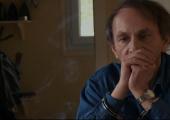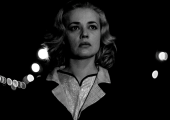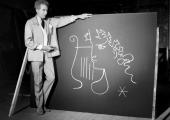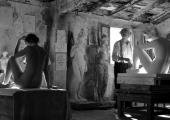Persuasive and sensitive delineation of how the Sixties dream withered
It’s always irritating being told “you had to be there”. Even more irksome is when some author, film director or nostalgic creative decides to record – naturally, they “fictionalise” it – their contribution to some golden era or significant event for posterity. Whether they’re being truthful, bigging themselves up or playing fast and loose with history is beside the point. They’re saying they were there. Olivier Assayas’s Something in the Air is the French director and writer’s entry in the canon and, shockingly, it’s great.
It’s great because Assayas has thoughtfully crafted a rich, universally resonant tableau. The turbulent France of May ’68 (the French title is Après Mai – see overleaf for a taste of the real Mai ‘68) is the jumping off point for a narrative centring on the Assayas analogue Gilles (Clément Métayer) and his interaction with a cast of middle-class characters embracing and then retreating from the preoccupations of the time. Some are earnest politicos or revolutionaries. Others are selfish hedonists or would-be careerists inevitably heading towards lives of responsibility. Central to Gilles's world is the torch he holds for the ethereal Laure (Carole Combes) and his relationship with the more earth-bound Christine (Lola Créton). Much of Something in the Air’s impact stems from its eye for accurate period detail. The music chosen is wonderful. Assayas had said that as he was there, he took control of the film’s look and props. Even so, Gilles’s hair is more poufed-up than anyone’s would have been back then – beyond Brylcreem, or whatever the French version was, male hair product wasn’t quite so wide-ranging in the late Sixties.
The DVD extras add little to an appreciation of the film. A making-of film features on-set footage punctuated by Assayas offering truisms to camera. A separate filmed interview gives him the chance to do so again, but in English this time. The must-see is footage of the light show created for the film’s concert sequences.
Something in the Air says nothing original – people move on, the world changes, causes aren’t necessarily forever – but says it persuasively and with sensitivity. File alongside Barbet Schroeder’s poignant duo of contemporaneously made films More and La Vallée, and even Withnail and I.
Overleaf: Watch the police storm the Sorbonne in Paris in May 1968










